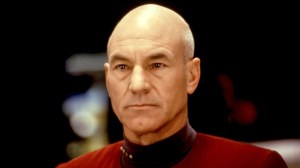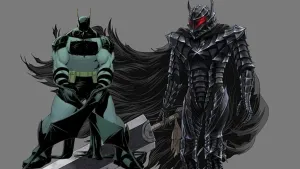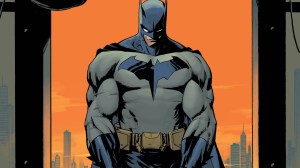LOST has aged as one of the most divisive television shows in history. At its launch, it was one of th most successful and revolutionary titles on cable, centered around character-driven mysteries on an island with survivors of a plane crash. Through its six year run, the story had its ups and down, ultimately culminating in a finale which was loved by some and loathed by others. As it turns out, the creative team behind the series want to come to a conclusion after only three seasons but executives at ABC demanded more. LOST writer Damon Lindelof opened up about the process.
Videos by ComicBook.com
“I’m not trying to be diplomatic, I’m trying to give you the most accurate answer the way that I remember it, which is the conversations about wanting the show to end began as early as the pilot,” Lindelof told Collider. “One of the notes that we were getting back from ABC was ‘When are you gonna resolve these mysteries? And once you resolve these mysteries, why will people keep watching the show?’ And Level One of that was, ‘Well we’re gonna be introducing new mysteries as we go. So hopefully for every one that we answer, we’ve set up a new compelling mystery. If we get that balance right, they’re not gonna stack up.’ I think that we can both agree that we did not get that balance right.”
Those mysteries are very easy for LOST fans to recall, but Lindelof recounted them himself while also explaining some of the issues the writers were running into in trying to extend their shelf life. “LOST was like, ‘What’s in the hatch? What’s up with the monster? Who’s the original Sawyer? How did Locke get in the wheelchair? What is the nature of the island? Why does it appear to be moving? Who are the Others?’” Lindelof explained. “There were all of these compelling mysteries and so we were saying, ‘We wanna have this stuff answered by the end of Season 1, this stuff answered by the end of Season 2, and then the show basically ends after about three years.’ That was the initial pitch, and they were not even hearing it. They looked at particularly me — Carlton came on about midway through Season 1 and he joined the chorus of me — but they were just like, ‘Do you understand how hard it is to make a show that people want to watch? And people like the show? So why would we end it? You don’t end shows that people are watching.’”

Ultimately, this prompted a sense of urgency from Lindelof and Cuse to start pushing to a finale. “So we got all the way to the end of Season 2 and then tried to formalize the conversation again,” Lindelof went on. “At that point, it was formal because Carlton and I both had two-year deals that ended after Season 2, so we were now negotiating for the future of the show. They thought they were in a monetary negotiation, where it was like we were trying to get more money, and all we were trying to get was for them to agree to end the show. So neither side blinked, so we agreed to sign a one-year extension — Carlton and I — with the understanding that we’d be leaving at the end of the third season and someone else would be running the show. Right at the same time Alias had ended, so LOST absorbed a number of the fantastic Alias writers including Drew Goddard who had already written some episodes of LOST in the second season and Jeff Pinkner, who is incredible, was gonna kind of be the heir apparent for Season 3.
ABC did not seem to understand that building out too much content would limit the interest in thee mysteries surrounding the characters and the island. “All this time when ABC would be like, ‘Why do you want to end the show?’ we’d say, ‘These flashbacks are finite. You can do like three flashbacks of Jack getting drunk and being self-destructive, or Charlie relapsing, or Kate running away and the marshal that is chasing her. But ultimately the first one feels like an origin story because you’re learning about that person for the very first time, but all the other ones feel like you’re treading water. So we’re gonna have to switch gears—we can introduce new characters who have new backstories, but people are invested in the old ones. We’re seeing about eight chess moves ahead and it ain’t gonna end pretty.’ And they just didn’t agree with us.”
As the story goes, Season 3 comes along in 2007, leading into a writers’ strike the following season. Whether or not that was a part of the frustration for the writers, Season 3 is often considered to bee the spot where LOST took a dip in quality for the first time. “The beginning of Season 3 happens. Those six episodes air because ABC decides that they’re going to split the season into two parts… after those six episodes of Season 3 aired, they finally understood, and we were not phoning it in or trying to spike the show, we always did our best,” Lindelof explains. “But it became clear that we were working so hard to keep the characters on the island, and it was starting to be immensely frustrating. The flashbacks weren’t good anymore. Other than the addition of Michael Emerson as a regular and Henry Ian Cusick as a regular, and Adelwale [Akinnuoye-Agbaje] and Michelle Rodriguez and Cynthia Watros, the tail section, some of that stuff was working but all the other stuff wasn’t.”

Finally… ABC execs came around to letting the writers end LOST… kind of.
“Then they finally came to the table and we had a real conversation. They were like, ‘We have agreed to let you end the show.’… I just said to [ABC President] Steve McPherson, ‘Thank you. This is what’s best for the show,’ and he said, ‘We were thinking 10 seasons.’ Mind you, we’re halfway through Season 3, so first off how do you even think we’re gonna get to 10? That’s really the same as saying we’re not gonna let you end the show, because how many drama series even get to 10 seasons?”
In the end, the series came to a conclusion in 2010 after six seasons.
“I was like, ‘I was thinking more like four [seasons]’. Not because I was in a negotiation but because we had actually already worked out the Oceanic 6 story to some degree. We knew that a number of the characters were going to get off the island, they were going to have a very miserable time when they were off the island, and then they were going to come back for the finale. We felt like we could kind of do that starting in the back half of Season 3 and then have one more season, Season 4, which would have been a full season of television, twenty some-odd episodes, to do it all. And they were like, ‘How about nine?’ (laughs). So the agreement was we landed on six [seasons] with less episodes to give us more time in between seasons to plan things out. And then of course the fourth season was cut short by the writers’ strike, but everything else went relatively according to design. Not to say that everything we did worked, but we had a plan and we executed that plan.”








